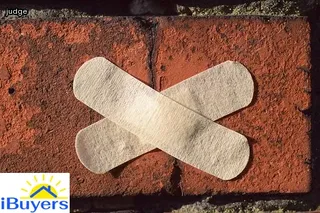A Delaware quitclaim deed is a legal document that allows an owner to transfer the rights and interests of real estate property. To properly prepare a Delaware quitclaim deed, the grantor must fill out the deed with their name and address and include the name of the grantee, who will receive ownership of the property.
The physical address of the property must also be included on the deed. After filling out all of this information, it should be signed by both parties in front of a notary public and have two witnesses present.
Additionally, if either party is married they may need their spouse to sign off as well. Before submitting it to a recorder’s office for filing, make sure all required fields are filled out correctly and that any applicable taxes or other fees are taken care of.
Following these steps will ensure that the Delaware quitclaim deed preparation process goes smoothly.

A Delaware Quitclaim Deed is a legal document used to transfer ownership of a property from one party to another without any warranties or guarantees. It is important to understand the key terms involved in preparing this document for your house, such as grantor, grantee, consideration, and description of the property.
The grantor is the person transferring the deed and should include their full name and address. The grantee is the person receiving the deed and should also include their full name and address.
Consideration is an agreement between parties that usually involves money but can also be exchange of goods or services. Lastly, it's important to provide an accurate description of the property including street address, city/town it's located in, county where it's registered, parcel number (if applicable), and any other pertinent information regarding ownership rights.
Preparing a Delaware Quitclaim Deed can be complex but with understanding of these key terms you will be well on your way to successfully transferring ownership of your house.
Preparing a Delaware quitclaim deed for your home is not an overly complicated procedure, but it is important to follow the necessary steps carefully and accurately. Firstly, you must obtain a standardized form specific to Delaware from the state’s Department of State Division of Corporations website.
This form should include particulars such as the grantor and grantee's legal names and addresses, along with the property description. All other fields need to be completed with details related to the transaction such as the amount conveyed in consideration for the transfer and any restrictions that may be applicable.
Once all information is included in the deed, it must be signed by both parties in front of a notary public. Afterward, copies of the deed should be made and kept by each party involved in order to protect their rights.
Finally, the deed must be filed at a county recorder's office with an accompanying fee before officially entering into effect. Follow these tips when writing your Delaware quitclaim deed to ensure that everything goes smoothly and that all necessary legal requirements are met.

Filing a Delaware Quitclaim Deed can be a complex process and it is important to understand the steps involved in order to successfully complete the filing. To begin, you will need to create a document that will serve as the Quitclaim Deed.
This document should include the names of all parties involved in the transaction, their addresses, legal descriptions of the property, a statement of facts, and any special instructions or requirements that may apply. Once the document has been created, it must be signed by both parties in front of witnesses.
Once signed, it must be notarized and then filed with the Delaware Recorder's office along with any other required documents such as proof of ownership or title insurance information. Finally, once all documents have been accepted by the Recorder's office you will be issued a certified copy of your Quitclaim Deed which serves as proof that you are now the legal owner of your property.
Preparing and filing a Delaware Quitclaim Deed can be an overwhelming task but understanding each step and following through with them carefully is key to ensuring success.
There are numerous free resources available online to help individuals obtain the necessary Delaware QuitClaim Deed template to prepare a legal document transferring ownership of their house. These templates can be found on state government websites and other sites such as Legal Templates, Rocket Lawyer, and FindLaw.
All these sources provide the user with detailed instructions on how to fill out the form correctly and completely. It is important for all parties involved in the transaction to understand what a quitclaim deed is and how it works before filling out the form.
Once filled out, it should be signed by both parties in front of a notary or other public official. Having a copy of the completed quitclaim deed is essential for verifying that ownership has been transferred accurately and legally.
If you need assistance understanding Delaware laws or regulations related to real estate, seeking help from an experienced lawyer may be beneficial.

A Delaware quitclaim deed is a legal document that can be used to transfer ownership of property from one person to another. It is often used when one party wants to relinquish all rights and interests in the property, usually without any guarantee of title or warranty.
While it may seem like an easy way to transfer real estate, there are both benefits and drawbacks associated with this type of deed. The primary benefit of a Delaware Quit Claim Deed is that it is relatively simple and inexpensive, making it an ideal choice for those who don’t want to go through expensive or time-consuming legal processes.
Additionally, the process can be completed quickly, which allows for fast transfers of ownership. On the downside, since the deed does not provide any guarantee that there are no liens or other claims against the property, it may not always be the best option for larger purchases or when dealing with significant amounts of money.
Furthermore, if there are any unresolved issues or questions over ownership or title of the property, they must be addressed before a transfer can take place.
When preparing a Delaware Quit Claim Deed for your house, it is important to understand and adhere to the procedures and requirements of the state. Additional document information can be found at the Delaware Department of State website.
The website provides resources on filing and recording documents as well as other forms related to real estate transactions in Delaware. Additionally, you can find information on how to properly fill out a deed, including what details must be included.
Furthermore, you can view sample deeds which will help you understand how to properly prepare a Quit Claim Deed for your house. Lastly, there are contact numbers provided in case further assistance is needed.
Through the Delaware Department of State website, you will have access to all the resources necessary for preparing a Delaware Quit Claim Deed for your house.

When preparing a Delaware quit claim deed for your house, it is important to understand the differences between real estate documents in Delaware. A quit claim deed is a legal document that transfers ownership of property from one person or entity to another without making any warranties or guarantees regarding the title.
This type of document can be used to transfer real estate interests, such as a home, land, or buildings. In contrast, a warranty deed provides assurance that the seller is transferring good title to the buyer and will defend against claims from others attempting to gain ownership of the property.
Additionally, a leasehold deed transfers possession rights but not ownership of the property. Furthermore, an easement document grants certain rights over another's land for specific purposes such as vehicle access or utility lines.
Real estate documents in Delaware can vary depending on the particular transaction and understanding these different types of documents is essential for successful completion of a Delaware quit claim deed process.
Delaware Quit Claim Deeds are one of the most commonly used real estate documents in Delaware. They allow property owners to quickly and easily transfer an interest in a piece of property from one person or entity to another without providing any warranties or guarantees about the condition of the title.
When preparing a quit claim deed, it is important to accurately list the grantor (the person transferring the property) and grantee (the person receiving the property). Additionally, it is necessary to include a legal description of the property being transferred and have all parties sign and notarize the document.
Finally, it is essential that you record your quit claim deed with your county clerk’s office in order to make it legally binding. Preparing a Delaware Quit Claim Deed can be a straightforward process if done correctly, but seeking professional advice is always recommended if there are any questions or concerns.

When transferring property in Delaware, there are a few financial considerations that need to be taken into account when preparing a Delaware Quit Claim Deed for your house. You should make sure all transfer taxes and recording fees have been paid before the deed is signed.
In addition, you may need to obtain permission from your mortgage lender or other lien-holders if the deed is being used to settle an existing debt. Furthermore, if the property is part of an estate or trust, you will likely need to seek counsel from an attorney who specializes in real estate law.
It is important to keep accurate records of all fees associated with the transfer and ensure that they are paid in full before the deed is recorded at the county courthouse. Lastly, it is wise to consult with a qualified real estate professional when preparing a Delaware Quit Claim Deed as they can provide insight and advice on how to properly complete the document.
Notarizing a Delaware Quit Claim Deed is an important step in transferring ownership of a home. Before notarizing the deed, all parties should read and understand the document, including any additional requirements or documents that are needed to complete the transfer.
The document must be signed by all parties and must include the name and address of each individual involved in the transaction. After signing, it is necessary to take the deed to a Notary Public who will verify identities and witness signatures.
The Notary will then affix their stamp and seal on the document, making it legally binding. Once this process has been completed, copies of the deed should be made for each party involved in the transfer so that they may have proof of ownership.
It is also advisable for all parties to keep a record of their transaction for future reference.
Filing a quitclaim deed in Delaware is relatively simple, and the cost to do so is minimal. The Delaware filing fee for a quitclaim deed is $25, which must be paid when the document is submitted.
Additional expenses may include any recording fees charged by the local county recorder’s office and a title search to verify that there are no outstanding liens against the property. To prepare a Delaware quitclaim deed, you’ll need to obtain an official form from your county recorder’s office or download one from their website.
After completing the form with all required information (such as names of grantor and grantee, legal description of property, etc.), sign it in front of a notary public to make it legally binding.
Once completed and signed, submit the quitclaim deed to your county recorder's office along with payment of the filing fee. By taking these steps you can quickly and easily file a quitclaim deed in Delaware and ensure ownership of your home is transferred properly.

In Delaware, a quit claim deed is a legal document used to transfer ownership of real estate. To prepare one, the owner must provide certain documents and information.
The seller's full name and address must be included, as well as the buyer's full name and address. The owner should also provide a valid legal description of the property being transferred, which can be obtained from the county assessor's office.
Additionally, the deed must be signed in front of two witnesses who are not related to either party. Finally, it is important to note that any taxes or liens on the property must be paid prior to executing the deed.
Once all requirements are met, a quit claim deed in Delaware can be prepared and executed.
In Delaware, you must file a quit claim deed with the Recorder of Deeds in the county where your property is located. To prepare a Delaware quit claim deed, you must first obtain a blank deed form from either the state's Department of State website or a local title company.
The deed must include the names and addresses of all parties involved in the transfer, legal descriptions of the property, consideration for transfer, and signatures from all parties. Once complete, the deed must be filed with the Recorder of Deeds office in the county where your house is located along with any applicable filing fees.
It is important to note that each county may have its own requirements so it is best to consult with a local attorney or title company to ensure that all paperwork is properly filled out and filed.
In Delaware, a deed must meet certain requirements for it to be legally valid. All Deeds in Delaware must be in writing and signed by the grantor(s).
The grantor(s) must also have the legal capacity to transfer the property. Additionally, all Deeds must include a description of the property, including address and tax ID number; it must also list all parties involved in the transaction, including their mailing addresses and signatures.
Furthermore, it is important that all deeds are properly executed with a notary public or other authorized witness present at the signing. Lastly, any Quit Claim Deed should include language specifically stating that no warranties or guarantees are being made regarding title to the property.
In conclusion, meeting these requirements is essential when preparing a Delaware Quit Claim Deed for your house.